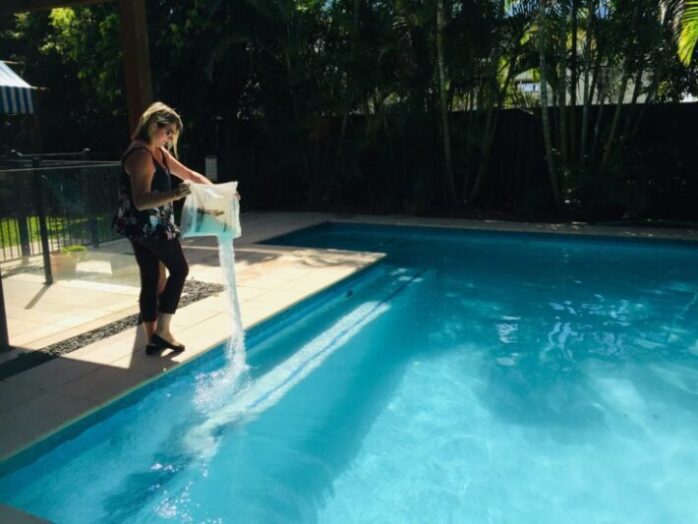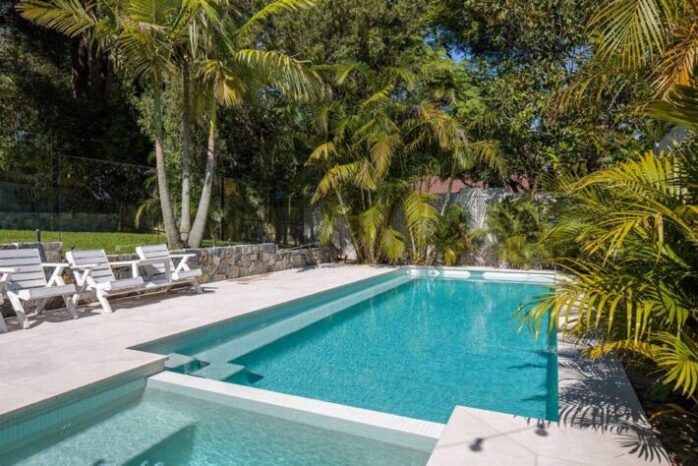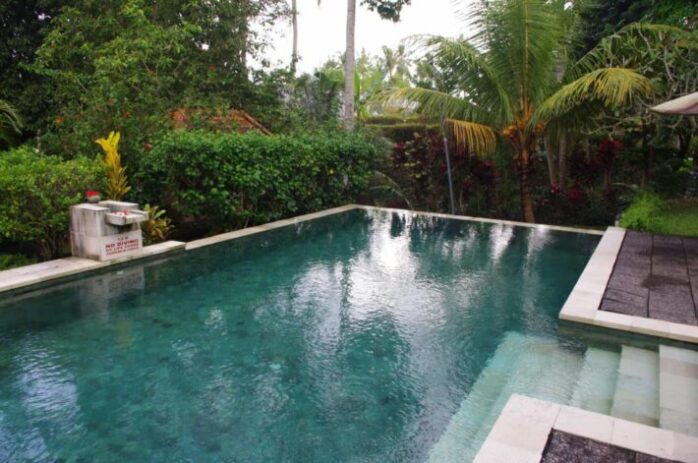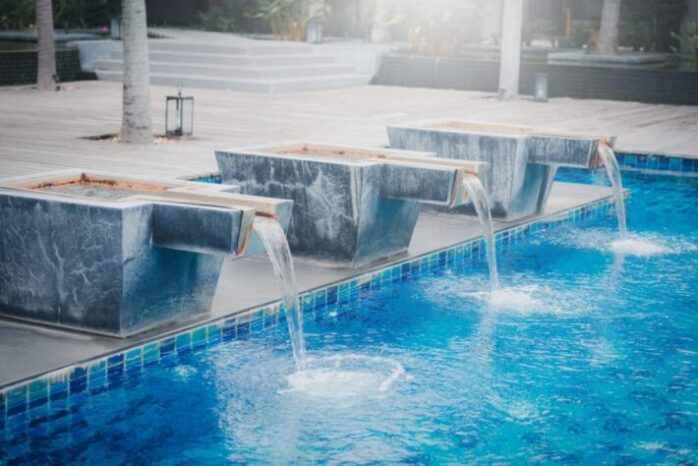
A pool in your backyard is truly a god-sent thing, and you’ll never know how much you need it until you spend an entire summer living in a building. Nowadays, swimming pools come in many different shapes, sizes, and styles, so it might not be the easiest thing to pick one that seems appealing to you from the market.
Also, they are not the cheapest investment to make, so before spending a lot of money, we all want to spend twice as much time thinking about our decision. Choosing a great pool and enjoying the warm summer days is always better than regretting your purchase.
So, if you are currently thinking about investing in a swimming pool, but you are not able to choose between a saltwater or a freshwater one, feel free to stick around with us until the end, and we’ll give our best to inform you about the pros and cons of both types. Here’s what you should know.
Chlorine and origins

We’re going to start by answering the main question by taking a look at the main difference between a saltwater pool versus a freshwater one. But, before we do that, we have to talk a bit about chlorine and its uses. So, let’s get that out of the way and we’ll come back to continue just from where we left off.
Ever since people started understanding chemistry a bit more, they tried to come up with a way to keep their environment clean, but most importantly, their water. Nobody can survive without water, but nobody can survive drinking polluted water as well. This means that our priority should be keeping the water clean and free of any germs that might harm our organisms.
The most cost-effective method of keeping water clean is chlorine, and ever since people discovered this, they started utilizing different techniques to keep the aqua in a healthy and consumable state.
As time went by, life got modernized and people started looking for ways to improve their quality of life, and nothing speaks luxury like a swimming pool in your backyard.
However, our body has a way of absorbing water through the pores in our skin, so drinking it is not the only way we can get it inside our body. This means that if we swim in water that’s not clean, we are risking catching an infection or even worse.
So, what does this have to do with salt water or a freshwater type of a pool? Let’s find out.
Freshwater – Regular

If you want your water to be clean, and you have a regular, freshwater type of a pool, you will have to pour chlorine into it daily, or if you are pouring larger quantities, you can do it just a few times per week, but it’s still something that you can’t risk doing.
Now, although this seems like a simple thing to do, and it is, once you start doing it every single day, you will realize that it can get quite frustrating, especially if you run out of chlorine just when you are about to do it. But, the cons don’t end up there.
When it comes to doing this manually, not only that you’ll pour chlorine regularly, but you will constantly have to test the current pH of the water, so that you make sure you are maintaining the balance between having clean water, but you won’t risk burning your skin from too much chlorine.
Okay, so the final thing that is considered to be a negative for this case, is the fact that over the long-term, you will end up spending a lot more money by purchasing chlorine.
Saltwater Pool

Now, this is where things get a lot more interesting, and quite cheaper as well. For those of you who are not informed what a saltwater pool means, it’s just like a regular one, except it has a chlorine generator, a machine that’s able to utilize the salt that you’re pouring to break it down and create the infamous chlorine gas.
Chlorine gas has the same role, which is to keep the water clean and free of any germs. If you already have a regular pool, and you want to convert it to saltwater, you can learn more here.
The chlorine generator will allow you to completely get rid of the responsibility to pour pre-made chlorine into the water, so you will have a much easier task now, which is to pour salt every once in a while, without the need of checking pH and other unnecessary things.
By buying salt instead of pre-made products from the market, you will save a lot more money in the long run, so think of this as an investment rather than a luxury. If you care about the health and all of that, this is an even better option for you because you will be using a lot fewer chemicals than what you would use with the freshwater variant.
Also, the generators are known to be very durable, and according to the experiences of users worldwide, they don’t need a replacement until at least five or more years, which is the worst-case scenario.
So, who’s the winner?

The time has come to decide which option is better, and the answer is, it depends. Although the saltwater option is cheaper for a start, it brings a few responsibilities with it that you’ll have to fulfill unless you want to risk swimming in polluted water. This is especially dangerous if you have kids who are more vulnerable and prone to catching a disease. Also, you will spend more money in the long-run, which makes this not worth it.
However, if you don’t have enough money for saltwater, it’s better to have some kind of a pool than to be left without one. If you do have the budget for a generator, it’s better to go for this option because the investment might be larger at the start, but the costs will be greatly reduced if you take a look at the bigger picture. Don’t forget that you can always upgrade from freshwater to saltwater any time though.











